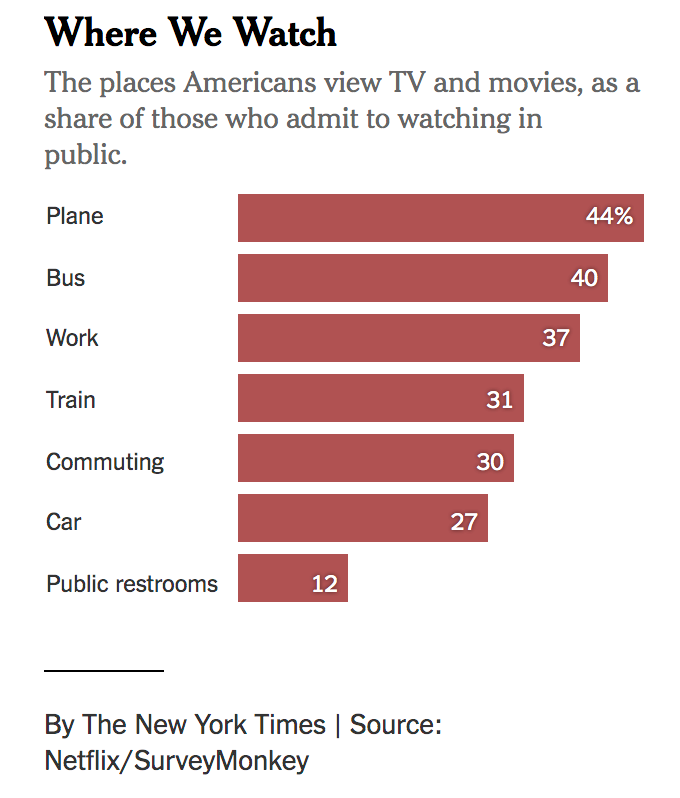My Employee is Watching Movies at Work: What Should I Do and Say?
Optimize team management in minutes with ManageBetter. Start your free trial now and join Uber and Microsoft in boosting performance, gathering insights, and generating reviews—all AI-powered, no writing required.
You catch Chris watching movies at work. Immediately, an alarm goes off in your head. You think,
“He’s paid to get work done, not watch movies. It doesn’t seem right that he’s doing anything other than focusing on his work while on the clock.
Plus, this must be a distraction. His work quality will sure slip and he won’t get as much done.”
What should I do? What should I say?”
Before you run to try to “fix” this seemingly bad behavior, pause for a moment.
Employees doing non-work related activities such as going on Facebook, scrolling Instagram, and online shopping has seemed to increase.
The New York Times reports, the results from a survey Netflix conducted shows 37% of Americans admit to watching TV and movies at work. That’s the third-highest category compared to other public places such as on a plane or bus.
Research conducted by the Pew Research Center found that 61% of young adults watch TV through streaming services as opposed to cable, satellite, or digital antenna. These young adults are taking over the workforce. With the change in TV and movie consumption, combined with the accessibility of computers in the workplace, it wouldn’t be a surprise if there is an increase in the number of people who view TV and movies at work.
To what extent is this acceptable? As a manager, what do you do?
The better question is, should you do anything about it?
The answer is: it depends.
What to evaluate to decide whether you should take action
1: Look at his/her results.
Is there a decrease in work quality and quantity?
Countless people multi-task. Some are great at it, some, not so much. Also, people often listen to music or a podcast when working to drown out distractions. Watching movies could serve the same purpose for certain individuals. You’ll need to look at how this action affects their performance as an individual.
2: Observe the effects on others.
Is it decreasing the quality and quantity of work of others?
This will be more applicable to non-remote employees. Remember when professors didn’t allow electronics in class because it can be more distracting to surrounding students than the student using the device itself? Same concept.
3: Violation of company policies.
Does it violate company policies?
For example, if an employee is using their work computer to stream explicit content, it could be deemed as misuse of company property. Learn your company’s policies to see if it applies.
What you should do and say
If the answer is “no” to the questions above, then no action is needed.
Micromanaging how employees spend their time is part of an archaic management style. Instead, companies are shifting towards results-oriented cultures (focuses more on outcomes than the process to get there). This allows for increased flexibility. For example, rather than typical 9-5 work hours, employees are able to work any hours as long as the work meets set deadlines.
Results are met. The activity does not affect others. No rules have been violated. Therefore, there’s no valid reason to confront the behavior.
If the answer is “yes” to any of the questions above, appropriate action is required.
Treat it like your typical performance improvement conversations.
Scenario 1: Change in the quality or quantity of work
Bring awareness to the change in performance
Watching movies at work may not be the root cause of the change in performance. This is an assumption. Start by bringing light to the issue to learn if there’s other factors at play.
“Hi Chris, I noticed there’s been a slight decline in the quality of work you’ve presented lately. It’s not up to your usual high standards. For example, the report you turned in had several incorrect calculations. Have there been any distractions lately?”
Acknowledge the action
If an employee does not show improvements in their performance and continues to watch movies, try this:
“Hey Chris, I want to follow up on our last conversation about your work performance. There hasn’t been much improvement. There were several mistakes in the last report. I noticed you’ve been watching movies while working. I’m wondering if it’s a distraction and causing you to make mistakes. How about let’s try eliminating that potential distraction and see if it helps?”
Scenario 2: The behavior is disruptive to other employees
The cause of negative effects to the team should be corrected. Rather than reprimanding them for being the cause of distraction, as they might not realize it, bring it to their attention.
“Hi Chris, I noticed you were watching The Office yesterday while working. It doesn’t seem to be a distraction for you as you’ve continued to produce exceptional work. However, it could be disruptive to those around you when you have it on full screen. How do you think we can minimize the distraction to others?”
Scenario 3: Violates company policies
If the action violates company policies, start with a warning. Then move to disciplinary action based on your company’s policies. Consult your HR department if needed.
“Hi Chris, it has been brought to my attention that you’ve been watching movies that contain explicit content during work hours and on company computers. This violates company policies on the appropriate use of company property. Please do not engage in such activities anymore. Continuing such actions will result in disciplinary action.”
Remember, if you find yourself wondering what to do if your employee is watching movies at work, follow these steps.
First, evaluate the situation.
Is there a decrease in work quality and quantity?
Is it decreasing the quality and quantity of work of others?
Does it violate company policies?
Then, take the appropriate action depending on the scenario. Use the examples listed above as a guide.
Sharpen Your Leadership Edge: Join 3,000+ executives receiving weekly, actionable insights from industry experts. Subscribe free to The Thoughtful Leader and elevate your team's performance.


